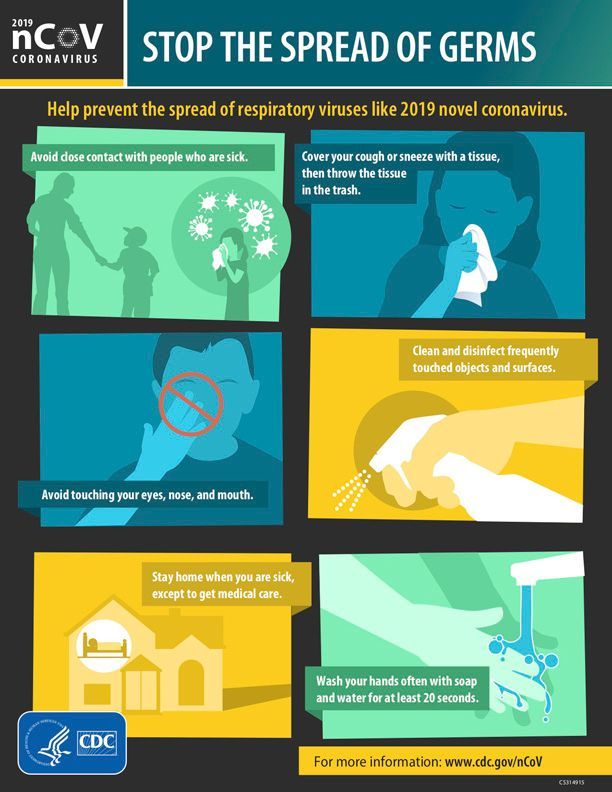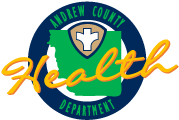
The current outbreak of 2019 novel coronavirus (2019-nCoV) was first identified in China but has now spread internationally, impacting an increasing number of countries. Sustained community spread is occurring in China. Limited person-to-person spread, most associated with close contact with a patient with confirmed 2019-nCoV, has been seen outside of China. No community spread of 2019-nCoV has been identified in the United States at this time.
In the coming days and weeks, we expect more confirmed cases in the United States, including some person-to-person spread. The goal of CDC’s aggressive ongoing public health response is to prevent spread of 2019-nCoV in in the United States.
Information Hotline
The Missouri Department of Health and Senior Services (DHSS) activated a statewide public hotline for citizens or providers needing guidance regarding the novel coronavirus, or COVID-19. At 8 a.m. today, the hotline opened and can be reached at 877-435-8411. The hotline is being operated by medical professionals and is available 24 hours a day, 7 days a week.
How to Prevent Infection
- Novel Coronavirus Fact Sheet
Overview of Novel Coronavirus, including what it is, how it is spread, symptoms, prevention and treatment - Environmental Cleaning and Disinfection Recommendations
Cleaning and disinfection recommendations for the general public to reduce spread of viruses - COVID-19: Caring for Your Hands
Guidance and recommendations on hand care, including handwashing guidance and hand sanitizer application - COVID-19: Washing Hands Can Save Lives
Guidance, created more specifically for kids, on how to wash hands and correctly use hand sanitizer
Information for Food Service Facilities
- COVID-19 Cleaning, Sanitizing, and Disinfecting for Food Establishments
Information and guidance for cleaning and disinfecting for food establishments to support a healthy work environment and community - COVID-19 Prevention for Food Service Facilities
Prevention and protection guidance for food service facilities to protect customers and employees
Information for Lodging Establishments
- Cleaning Recommendations for Lodging Establishments to Help Prevent the Spread of COVID-19
Cleaning and disinfecting recommendations to lodging establishments to help prevent the spread of viruses
Information for Confirmed or Presumptive Positive Cases and their Households
- COVID-19: Home Care Guidance
Guidance and recommendations for individuals with presumptive or confirmed COVID-19, and others in their household - COVID-19 Cleaning Practices for Individuals in Home Isolation/Quarantine
Guidance and recommendations for cleaning a home with a presumptive or confirmed COVID-19 case
What you should do
- STAY INFORMED – CDC is updating its website daily with the latest information and advice for the public. (www.cdc.gov/ncov)
- REMEMBER TO TAKE EVERYDAY PREVENTIVE ACTIONS that are always recommended to prevent the spread of respiratory viruses.
- Avoid close contact with sick people.
- While sick, limit contact with others as much as possible.
- Stay home if you are sick.
- Cover your nose and mouth when you cough or sneeze. Avoid touching your eyes, nose and mouth with unwashed hands; germs spread this way.
- Clean and disinfect surfaces and objects that may be contaminated with germs.
- Wash your hands often with soap and water for at least 20 seconds. If soap and water are not available, use an alcohol- based hand rub with at least 60% alcohol.
- IF YOU FEEL SICK with fever, cough, or difficulty breathing, and have traveled to China or were in close contact with someone with 2019-nCoV in the 14 days before you began to feel
sick, seek medical care. Before you go to a doctor’s office or emergency room, call ahead and tell them about your recent travel and your symptoms.
What you should not do
- DO NOT travel to China.
- DO NOT use facemasks. CDC does not recommend the use of facemasks for the general U.S. public to prevent the spread of 2019-nCoV.
- DO NOT show prejudice to people of Asian descent, because of fear of this new virus. Do not assume that someone of Asian descent is more likely to have 2019-nCoV.
All persons in the U.S.— including those of Asian descent—who have not traveled to China or been in contact with someone with a confirmed or suspected nCoV case in the last 14 days are at low risk of becoming sick.
For more information go to: www.cdc.gov/nCov





